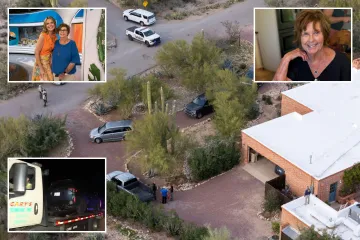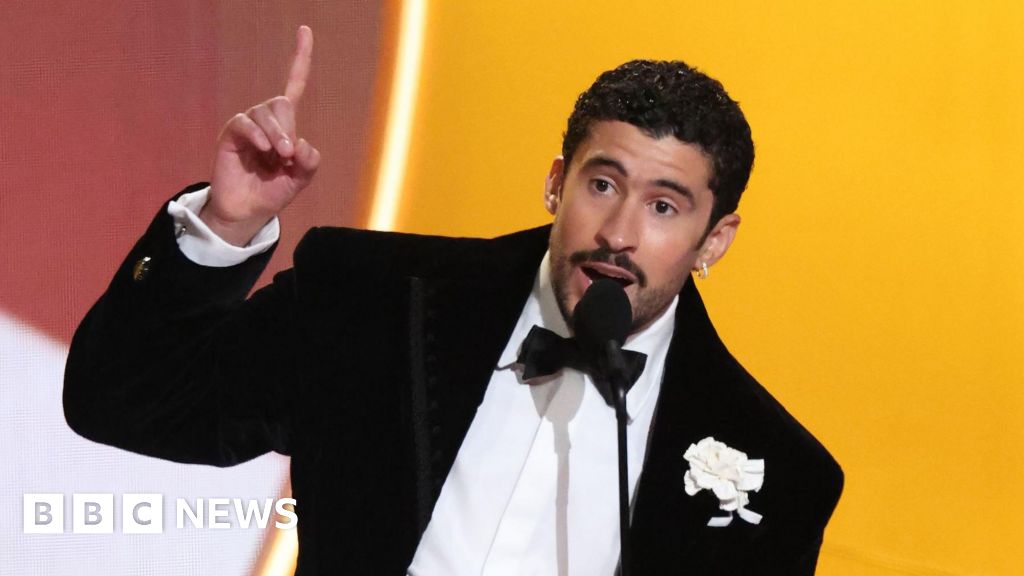Savannah Guthrie begs mom’s ‘kidnappers’ to return Nancy and declares ‘we will pay’ in new emotional video
SAVANNAH Guthrie has said she will agree to pay a ransom to the people who are believed to have kidnapped her 84-year-old mom.
The Today Show host filmed a video pleading with Nancy’s suspected captors to return her safely after alleged ransom notes were uncovered.
Nancy’s three children held hands as Savannah made the announcement alongside sister Annie and brother Camron.
She said in the short video: “We received your message, and we understand.
“We beg you now to return our mother to us so that we can celebrate with her.
“This is the only way we will have peace. This is very valuable to us, and we will pay.”
read more in Nancy Guthrie
What we know about Nancy Guthrie’s disappearance…
No other details about the ransom were mentioned and it remains unclear if the Guthrie family have been in contact with the suspected kidnappers.
It comes after the alleged captors behind Nancy’s abduction reportedly issued two stern deadline demands.
The first deadline was set for 5pm on Thursday with the demands not met.
Snippets of the alleged ransom note have been reported by various news outlets in recent days.
The letter is said to have demanded millions of dollars in cryptocurrency be transferred to a Bitcoin address.
Law enforcement officials have confirmed that the Bitcoin address provided in the letter is active.
FBI special agent Heith Janke told reporters on Thursday that authorities had reason to believe the note was legitimate.
It contained details about the crime scene, including what Nancy was last wearing as well as mentions of a flood light that activated on the property.
Authorities said the note contained information “only the abductors would know”.
Agent Janke added that there was an additional demand with a deadline set for February 9.
This was described by TMZ as being “much more serious”.
Savannah’s latest plea in full
The Today Show host made an emotional plea alongside her siblings on Saturday.
She said: “We received your message, and we understand.
“We beg you now to return our mother to us so that we can celebrate with her.
“This is the only way we will have peace. This is very valuable to us, and we will pay.”
Arizona cops and the FBI are still searching for any signs of Nancy as they continue to build up their case on her disappearance.
US President Donald Trump revealed that the FBI have some “very strong” clues in the search for the missing mom.
When asked what the clues would help with, Trump replied: “I’m not talking about a search. I’m talking about a solution.”
Cops were seen swarming Nancy’s Arizona home on Friday as they seized a car and camera wired to the roof.
FBI agents confiscated an SUV from the property where Guthrie is believed to have been kidnapped sometime between Saturday night and Sunday morning.
A tow truck removed the blue Subaru SUV from her home before cops escorted it to an impound lot near Pima County Sheriff’s Office, according to Fox News.
Investigators did not share why the vehicle had been seized from the property on their third visit to the crime scene.
Forensic teams were also seen scouring the roof of the Tucson property to retrieve the camera that had been missed in several previous searches.
Blood drops were also found on Nancy’s front step, but detectives have not confirmed who the blood belongs to.
Pima County Sheriff Chris Nanos has stated the force believes the 84-year-old is “still alive”.
A reward of $50,00 is being offered for any information leading to a breakthrough in the case.
It comes as a man behind fake ransom note texts to the missing woman’s desperate family has been arrested.
Derrick Callella from California was arrested and charged for sending fake text messages demanding payments and making phone calls to Nancy’s family.
Timeline of Nancy Guthrie’s disappearance
Nancy Guthrie, the 84-year-old mother of Today show co-anchor Savannah Guthrie, disappeared from her home on February 1, 2026.
Timeline:
- January 31, 5:32 pm: Nancy Guthrie jumps in an Uber and travels to a relative’s house for dinner.
- January 31, 9:48 pm: Family members drop off Nancy, 84, at her home in Tucson, Arizona, after having dinner with her.
- January 31, 9:50 pm: Nancy’s garage door closes.
- February 1, 1:47 am: Nancy’s doorbell camera disconnects.
- February 1, 2:12 am: Software detects person on camera (No video available, no subscription).
- February 1, 2:28 am: Nancy’s pacemaker app shows disconnect from her phone.
- February 1, 11:00 am: A parishioner at Nancy’s church calls the mom’s children and says she failed to show up for service.
- February 1, 11:56 am: The family goes to Nancy’s home to check on her.
- February 1, 12:03 pm: A 911 to the Pima County Sheriff’s Department is placed by the family.
- February 1, 12:15 pm: Pima County deputies arrive at Nancy’s residence.
- February 1, 8:55 pm: The Pima County Sheriff’s Office gives their first press conference, and reveals some clues found at Nancy’s home caused “grave concern.” They say helicopters, drones, and infrared cameras are all being utilized in the search.
- February 2, 9:17 am: Pima County Sheriff Chris Nanos says search crews have been pulled back, as Nancy’s home is considered a crime scene.
- February 2, morning: Savannah releases a statement that’s read by her co-hosts on Today, and thanks supporters for their prayers.
- February 2, evening: Nanos tells the media they fear Nancy has been abducted.
- February 3: Nanos admits they have no suspects, no leads, and no videos that could lead to Nancy’s recovery. He and the FBI beg for more tips and accounts from residents.
- February 3: A trail of blood is pictured outside Nancy’s home, where there were reportedly signs of forced entry.
- February 6: Police seize car from Nancy’s home
- February 7: Savannah says ‘we will pay’ ransom for her mom’s return



